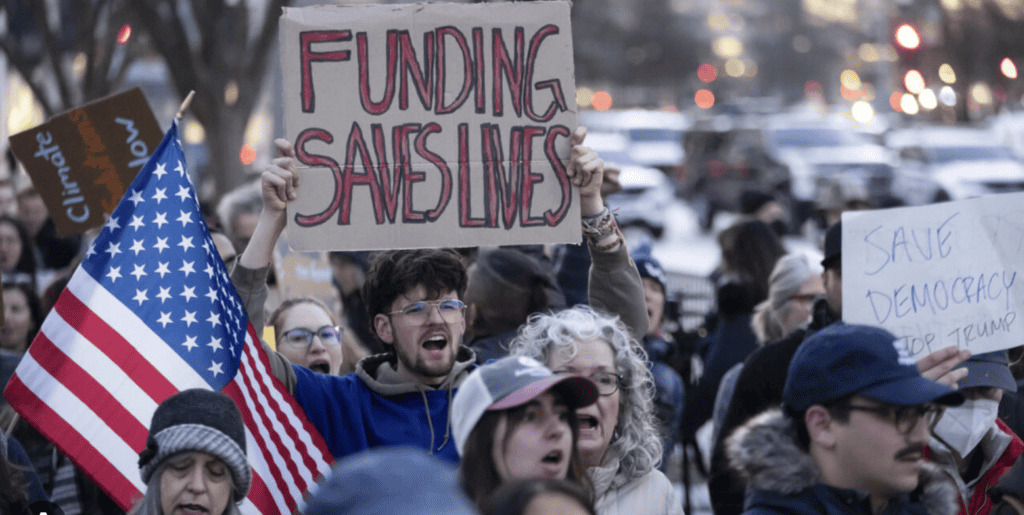
At President Trump’s inauguration last week, one of the first directives he gave was to issue a ‘Stop Work Order’ for 90 days on the overseas aid programs managed by US AID.
The impact is enormous. The US government overseas aid program is 60 billion USD (and still below what is considered its ‘fair share’). All programs funded under it (with a handful of exceptions) had to halt work with an immediate freeze on all humanitarian and development programs, sending shock waves in almost every low-income country in the world.
The full range of humanitarian support services will be impacted – everything from clean water programs, food, school education, health clinics, vaccination programs, climate adaptation work, land mine clearing and economic development programs. Longer-term programs supporting institution-building of governments, leadership development and skills, and training will also be impacted.
The impact is sweeping for the world’s most vulnerable people. At worst, many more people will die as a result of this decision, at best, inequalities in the world’s poorest countries will increase. This impact has already begun.
Governments the world over, use overseas aid as part of the tools of foreign policy intervention. Clearly, the US is no exception here. But there is no doubt that the US international development program is vital for redressing inequality internationally and many, many countries rely heavily on it.
One lesson we learned through the pandemic was that no country can completely secure itself and seal its borders. We are a globalised world and a global community.
Union Aid Abroad-APHEDA does not currently receive any US AID funding, so none of our project work is directly affected. However, many of our partner organisations do and are immediately impacted. They have to cut services, impacting refugee and migrant communities, ethnic minority groups, women and children, workers and their families. Here is one example of the impact on refugees on the Thai-Myanmar border in Karenni state.
President Trump has also stopped funding to the World Health Organisation (18% of the WHO’s funding is from the US) and HIV treatment and research, vaccine delivery and reproductive health services are all affected as a result. The impact of Trump pulling out of the Paris Agreement further risks the chances of the world reaching any coordinated action to control global warming – many will simply ask, why stay if one of the biggest polluters isn’t willing? Poorer nations (which includes Pacific Island nations) will lose at least 11 billion USD for climate adaption and mitigation programs.
What we can expect beyond the 90-days Stop Work Order is not yet clear, but the broad agenda for the Trump Administration is set out in ‘Project 2025’ released by the Heritage Foundation in April 2024. Within is a chapter on international development and US AID containing a suite of ultra-conservative proposals which threaten, in particular, equality for women, access to abortion rights and scene-setting for the withdrawal of US support to the UN agencies.
These directions are a deep threat to equality between and within poorer countries – and ultimately undermine stability, peace and security.
Governments everywhere must engage full diplomatic links to spell out the consequences of this approach to the US Government during this review period. The US cannot abrogate its global responsibilities, but if this funding suspension becomes permanent, then governments globally must be prepared to step in to fill the breach. Our own government must also work with Australian aid NGOs – who have people-to-people links across civil society in hundreds of locations globally – to try support and restore some of these services and programs lost and continue to support local capacity-building as much as possible.
This is a terrible warning of the impact of ultra-conservative governments who fear difference between peoples and reject social justice. These values lead to bigotry and to de-humanising each other. World history shows this can have horrifying ends.
The agenda of isolationism, mistrust and fear must be rejected. As unionists we stand for inclusion and solidarity as a pathway to global justice.
